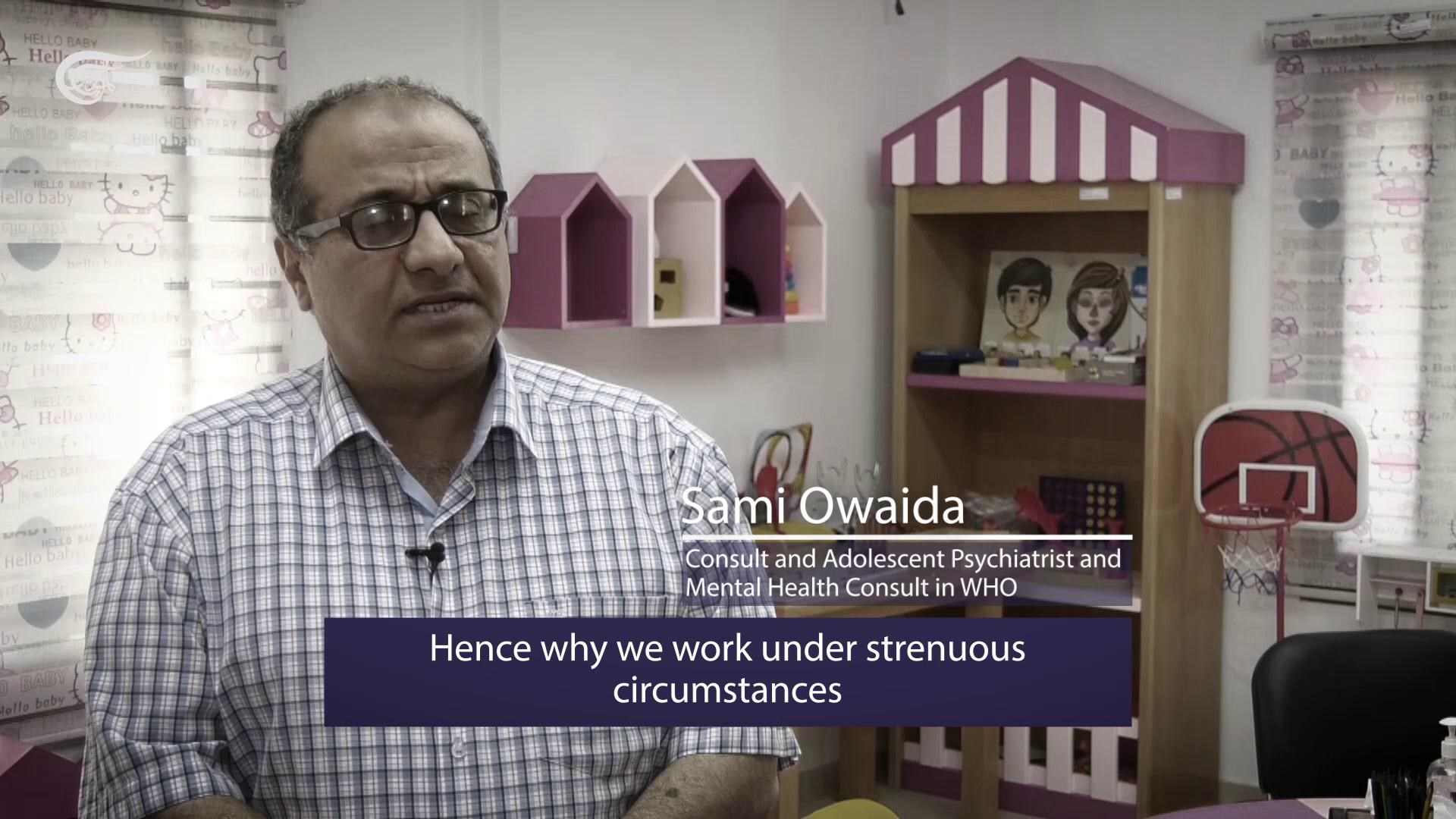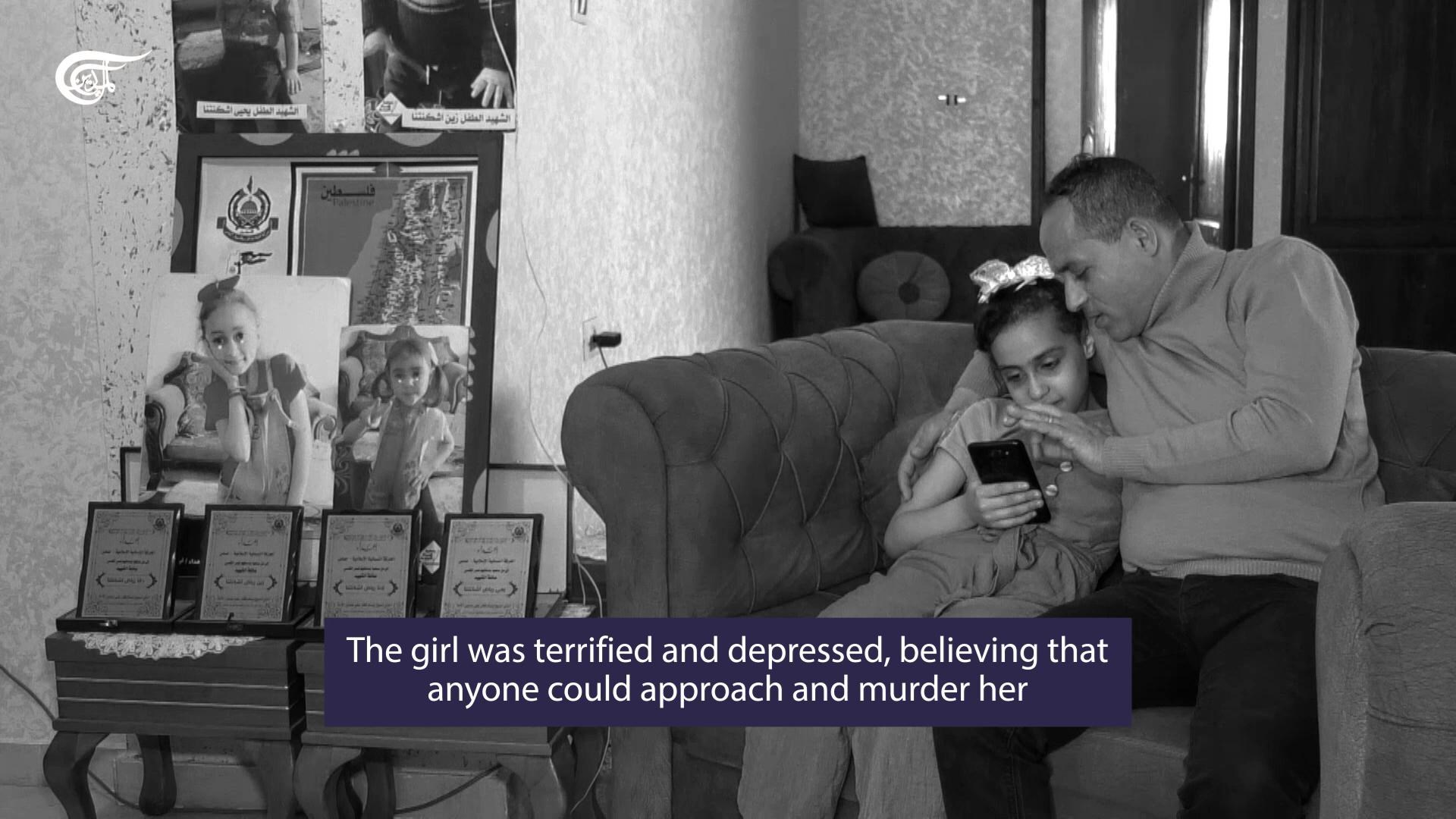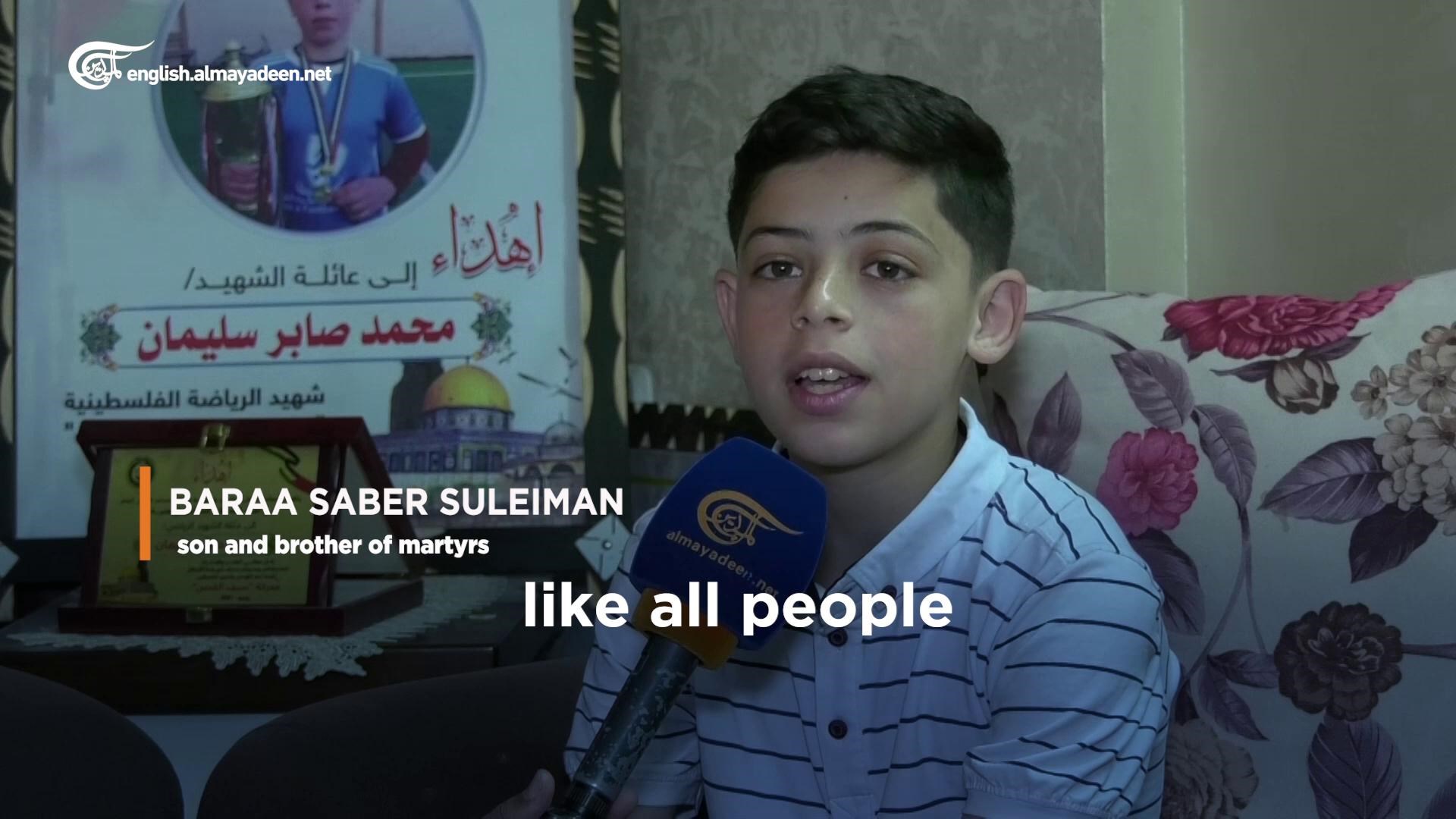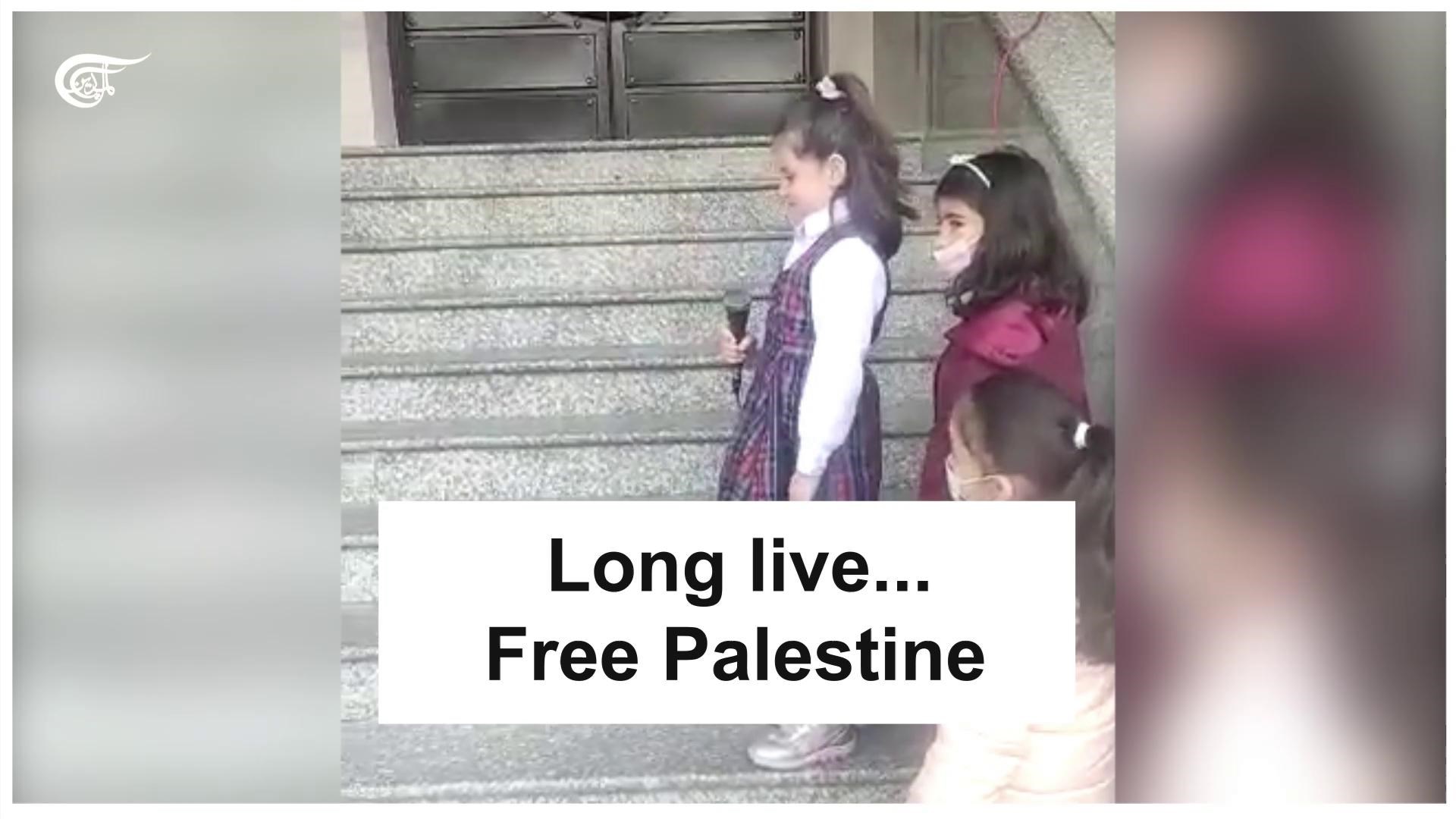“I am too young to die”: Children in Gaza left traumatized
With no place to hide and no safe haven to take refuge in, and with hundreds killed and thousands injured, 91% of children in Gaza were left with deep emotional trauma. Yes, “Israel” caused this last May.
-

91% of Gazan children now suffer from some form of trauma.
"Israel" unleashed brutal military aggression on Gaza in May 2021, killing at least 232 Palestinians, including more than 60 children.
A mostly silent consequence of the heinous war is its impact on the mental and psychosocial well-being of people who are already living under the brutal Israeli occupation. This is particularly true for children.
Remembering how #Gaza was left in ruins after Israeli raids and bombs targeted every corner of the Strip, injuring and killing innocent civilians back in 2021. #Palestine pic.twitter.com/JWDgjdy7ex
— Al Mayadeen English (@MayadeenEnglish) May 19, 2022
Traumatic childhood made by “Israel”
To better comprehend this alarming, underreported situation in Gaza, Al Mayadeen English talked to Dr. Sami Owaida, Adolescent Psychiatrist and Mental Health Consult in WHO.
“Without a doubt, it is impossible to discuss children's psychological situations without considering the political context. There is no doubt that the most recent aggression, which is part of a series of aggressions, led to a catastrophic situation," Dr. Owaida stressed.
-
Dr. Sami Owaida, Adolescent Psychiatrist and Mental Health Consult in WHO.
Prior to the aggression, children in Gaza, a total area of 365 km2 and a population of over 2 million, were already under Israeli occupation and suffered from a 15-year blockade.
“Any aggression against children leaves very difficult psychological effects. The difficulty lies in the fact that we are restoring the psychological situation of children as much as possible, but in the event of renewed aggression, we relapse from zero”.
-

Over a million and a half of the population in Gaza are children.
Dr. Owaida tersely affirmed that psychologists are working in a very difficult environment.
“The improvement cannot be guaranteed as long as the occupation exists and the possibility of new aggression exists. As a result, discussing the situation of children is difficult, especially given that the Gaza Strip's population is two million and three thousand according to the most recent statistics by the end of the previous year with 53% of the population in Gaza being under the age of eighteen.”
It is worth mentioning that 91% of Gazan children now suffer from some form of trauma to say the least, according to a new report from the Euro-Mediterranean Human Rights Monitor, a Geneva-based independent, nonprofit organization that the Israeli occupation government outlawed in 2016.
Prior to May 2021, approximately 33% of children in Gaza required mental health support as a result of trauma, the same study reported.
A year has passed since the Israeli aggression on #Gaza.
— Al Mayadeen English (@MayadeenEnglish) May 10, 2022
Pictures show #Palestinian kids rescuing their little toys to play with while sitting on top of their destroyed houses, and other kids mourning the death of some family member. #Palestine pic.twitter.com/IddB647nVB
“You're talking about over a million and a half children, and children are the weakest segment because their cumulative experiences are still limited. These cases are very difficult, based on the cases that have come to the center and the fact that our psychological center is one of many in the Gaza Strip. Cases that primarily suffer from the loss of parents, loved ones, relatives, and friends... there is no house in Gaza where there is no loss in lives,” Dr. Owaida added.
Signs of trauma in children
Some of the most common signs of childhood trauma include nightmares, insecurity, poor academic and social relationships, and so on.
Dr. Sami Owaida told Al Mayadeen English that “what is new in recent times is children suffering from severe poor appetite, which is caused by their refusal to eat during the May aggression in order to avoid going to the bathroom [they are terrified and frozen]. As a result, some symptoms of trauma lingered even after the aggression."
“Israel killed my family”
What is a “normal” situation to many Palestinian children is an incredibly stressful life event: the loss of a parent. Such a taxing life event is a severe emotional blow to the future of the child’s well-being.
“You are aware that children require an emotional and security anchor, which is provided by parents. Unfortunately, if one of the parents dies, the child will be psychologically disturbed or a candidate for a disorder since he or she lost one of the important pillars for a child's normal growth and development,” Dr. Sami Owaida stated.
“Even when the parents are present, the feeling of insecurity persists as a result of the events that occurred during the previous aggression and before it. A child can suffer a new trauma, a sense of insecurity, or the loss of a parent at any time," he added.
Strain on resources
The fourth war in less than a decade brought Gaza's fragile health system to its knees, most notably in terms of mental health.
“Unfortunately, I am the only child psychologist in the area. Of course, this is insufficient. Even our colleagues [adult psychologists] are in short supply because the number of cases is enormous and the psychological centers are few,” Dr. Owaida said.
“Unfortunately, specialists and psychiatrists are in short supply. Ongoing research is currently being conducted, however, the most accurate statistics or professional impressions currently, pending the completion of these studies, are that the majority of the Gaza Strip residents suffer from one or two symptoms of psychological trauma. This is not a disorder; it is a precursor to a post-traumatic stress disorder, which affects more than 80% of children in psychiatric facilities," he added.
Deep emotional scars
The child survivor
One year since the six-year-old girl Suzy Ashkantna was pulled from under the rubble of her house, wiped by an Israeli airstrike, she lost the ability to express herself except for one question, where are my mom and my four siblings?
“Suzy was one of the survivors who spent many hours under the rubbles without speaking to anyone. In this case, the girl suffered from anxiety and was traumatized. She lost her mother and sisters, not to mention losing her ability to talk and her trust in others after her rescue,” said Suzy’s father, Riad Ashkantna, who survived the massacre of Aiba Abu Al-Awf in Gaza.
-
Six-year-old girl Suzy Ashkantna and her father
The war ended, but Suzy’s character completely changed. She now lives in constant fear as she recalls drones buzzing, rockets roaring, airstrikes pounding, and she remembers the most painful, tragic loss of her mother and four siblings on a daily basis.
A double loss
“The martyrdom of his father and brother came as a double blow to Baraa,” his uncle said.
The personality of Baraa Saber Suleiman, son and brother of martyrs, has been totally altered after the Israeli aggression.
-
Baraa Saber Suleiman
“Baraa now sits and rubs his hands as a result of his psychological conditions and trauma. He’s suppressing his emotions and is unable to express them. He exteriorizes his emotions by spacing out and compulsively rubbing his hands for hours," his uncle added.
"I miss my cats"
Pets are often a child's first best friend, and losing them can have serious mental health consequences.
Taline and Alma Al-Jarousha lost their friends, house, and two cats (Fluffy and Misho) during an airstrike on Al-Jalaa tower.
The two girls had a very close bond with their pets, and losing them had a significant mental health impact, according to family members.
-
Taline Al Jarousha
Taline and Alma still wake up screaming with a constant sense of inevitable loss.
Despite all the pain, sadness, fear, and loss, those children still like to read, draw, play sports, and have fun with their friends. They still have hopes and dreams for a better future where Palestine is free.

 7 Min Read
7 Min Read












